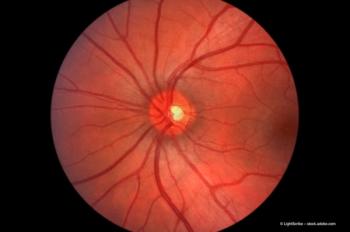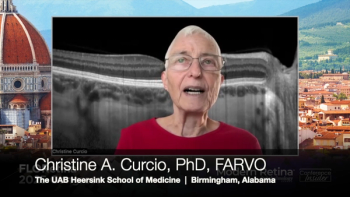
Dry AMD: A new hope
Dry age-related macular degeneration (AMD) is the most common cause of vision loss in developed countries. Although anti-VEGFs can be used to improve the quality of life for patients with the wet form of the disease there is still not much to offer dry AMD patients. In this article, Dr Georgiou highlights the results of his recent study looking at the value of higher doses of omega-3 fatty acids for this group of patients.
Supplementation with EPA-rich omega-3 fatty acids could help battle inflammation in the macula and, therefore, improve the vision in patients with dry age-related macular degeneration (AMD), according to the findings of a new pilot study.
Inflammation and oxidative stress fundamental
The initial injury in AMD is the retinal pigment endothelium (RPE), which is the layer of cells that lies below the photoreceptors in the macula. This may possibly be due to gene mutation, oxidative stress, light damage, lipofuscin accumulation, complement-mediated injury, inflammation or a combination of the above. Regardless of the initiating factors, the result is the formation of cellular debris called drusen that accumulate between the retina and the choroid that contains the blood vessels feeding the retina. The deposition of drusen seems to be involved in the early stages as well as progression of the disease.
These observations suggest that local inflammation plays a potentially significant role in the development of AMD. Unfortunately, inflammation remains one of the most complex biological systems. This may be due in part to distinct phases of an acute inflammatory response. The first is the classic initiation phase defined by the cardinal signs of inflammation. Among the major mediators in this phase of the inflammatory response is the generation of pro-inflammatory eicosanoids generated from the omega-6 fatty acid, arachidonic acid (AA). This includes prostaglandins (such as PGE2) and leukotrienes (such as LTB4).
Still not much to offer dry AMD patients
While current anti-VEGF therapies can improve the quality of life for patients, who have neovascular AMD, we still do not have much to offer to patients with dry AMD to stop progression or improve visual acuity, who represent 90% of patients with the disease.
The AREDS study showed that daily oral supplementation with antioxidant vitamins and minerals reduced the risk of developing advanced AMD from moderate AMD by 25% at 5 years. AREDS2 study did not yield an improved formulation compared to AREDS. Addition of 1 g of EPA and DHA did not further reduce the risk of progression. However, due to, increased risk to lung cancer with β-carotene, it could be substituted with lutein and zeaxanthin.
Most human clinical fish oil studies published over the past 13 years indicates that weekly consumption of fish slows down or prevents macular degeneration. Recent studies showed significant and strong associations of neovascular AMD with red blood cell membranes EPA,3 demonstrating that serum EPA was associated significantly with a lower risk of neovascular AMD.
Newsletter
Get the essential updates shaping the future of pharma manufacturing and compliance—subscribe today to Pharmaceutical Technology and never miss a breakthrough.




























